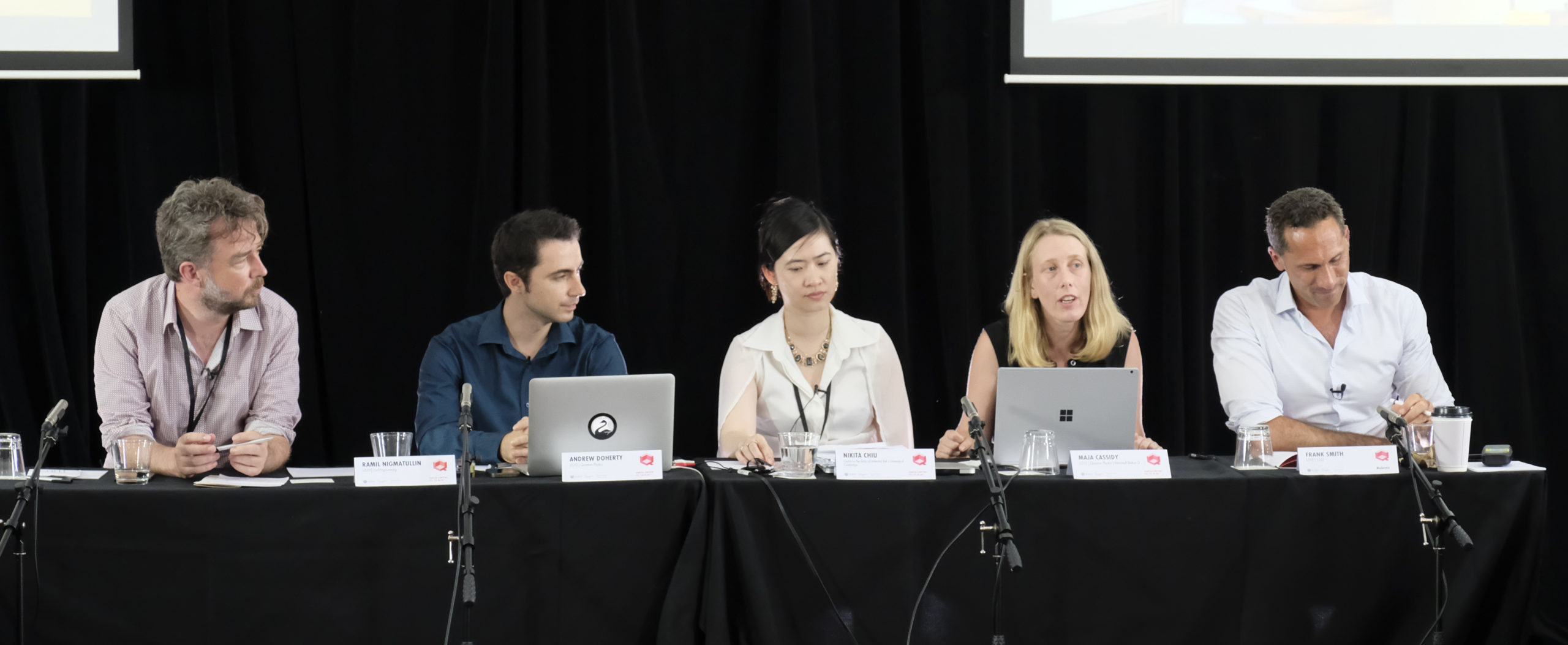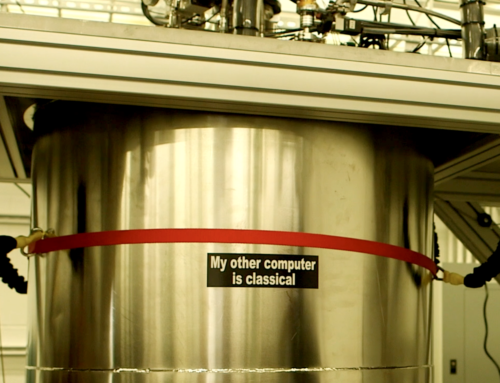Susannah Lai & Alex Vipond
This panel was moderated by Dr Frank Smith and featured Maja Cassidy (Microsoft), Nikita S.W. Chiu (Centre for Existential Risk), Andrew Doherty (USYD/Physics) and Ramil Nigmatullin (USYD/ Engineering).
Maja Cassidy
The second panel of the symposium took a turn for the speculative, discussing the possibilities of quantum computers and their impact.
Dr Maja Cassidy started the panel by talking about a quantum particle – the Majorana fermion, hypothesized by Ettore Majorana in 1937, a year before he vanished. Majorana suggested that a neutral spin-1/2 particle could be described by a real wave equation and would therefore be its own anti-particle thus also having zero charge. Majorana fermions are usually discussed in contrast to Dirac fermions, which are not their own anti-particles, and neutrinos, which have yet to be determined as either Dirac or Majorana fermions.
The possibilities of Majorana fermions lie mostly in the area of quantum error correction, due to their properties when in superconducting materials, termed as ‘Majorana bound states’ or Majorana zero modes’. By creating ‘twist defects’ that carry unpaired Majorana modes they can be put into a braid state. This would allow for the storage of quantum information for quantum computation, in a fault tolerant system.
While this proposition is still in the research and developmental stage, error checking and fault tolerance is a major obstacle to achieving a functional quantum computer. A solution in this area would be a major advance.
Nikita Chiu
Dr Nikita Chiu took the discussion in a different direction, discussing policy issues surrounding quantum computing rather than technical challenges. She talked about examples of policy solutions in other areas, drawing comparisons to situations that are appearing in quantum computing.
Chiu started out by discussing the sort of cases that her work at Cambridge’s Centre for the Study of Existential Risk focuses on: low probability but high or catastrophic impact incidents. She went on to detail a case study considered as something of a success – management of the risks posed by the accumulation of space debris in orbit.
She then discussed how lessons learned in that industry can be applied to the emerging quantum industry, talking about the similarities of shared public/private sector risks. On that topic, Chiu brought up an issue that was raised in the opening forum; when exactly is the ‘right’ time to start regulating the quantum computing industry? As some of the technical figures in the industry pointed out, it is still a fledgling technology and therefore it is extremely difficult to understand what regulations can or should apply, and what might help or hurt the development of the technology. Chiu pointed out that some of the potential results could change the technology landscape we live in, especially in the area of encryption and cybersecurity.
Andrew Doherty and Ramil Nigmatullin
Professor Andrew Doherty and Ramil Nigmatullin both covered similar topics, discussing the true potential of quantum computing versus classical computing and what new methods could really ‘bring to the table’. Doherty focused on the potential that people see in quantum, such as materials science modelling, but noted that the focus has increasingly shifted away from the possibilities of quantum encryption that had previously dominated discussion, contrasting this against what is actually possible now. He compared our current ability to ‘writing code in a notebook without even being able to compile it’.
Nigmatullin largely echoed this sentiment, discussing the potential for advancement in classical computing, or other areas more similar to classical computing than quantum, such as neuromorphic systems. Our problems, he concluded, are better framed as questions of processing power required, as opposed to requiring specific types of computing solutions. There are definite limitations within classical computing, including the scalability of processing power growth with respect to particular problems, not least the exponential power consumption associated with the growth in processing power.
If we evaluate the end result of actually solving problems, quantum computing needs to compete against both classical computing (which is much more advanced in software techniques already) as well as potential ‘complex adaptive systems’ such as neuromorphic systems, which are potentially similar enough to classical computing to at least be able to take advantage of the mathematics already solved with regards to the software.







Leave a Reply